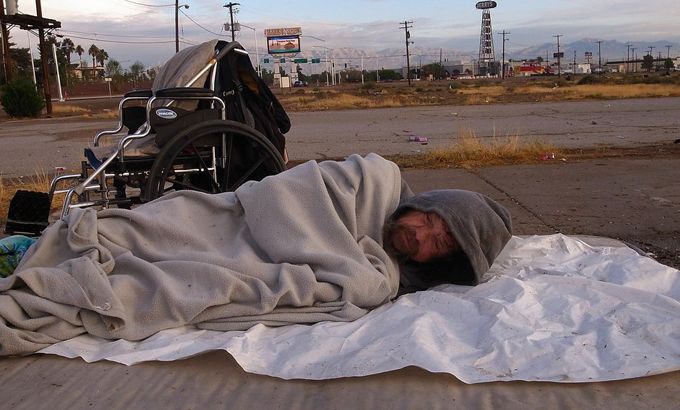
Will rising poverty affect the US election?
As the wealth gap in the US is growing, we ask if there is political will to improve the lives of the country’s poor.
There is more evidence of the growing wealth gap in the US: A new report says that the number of people living in poverty could be at its highest level in nearly half a century. So how can the US government help its least fortunate?
In 2010, one in six Americans were considered poor. That is more than 47 million people living on less than $10,500 per year.
|
“We are creating poverty in this country …. If you are unemployed, employers are not going to want to hire you because you are unemployed. If your credit rating is bad, nobody is going to want to hire you. It’s like we have a system for pushing people who begin to slide down further and further.“ – Barbara Ehrenreich, the author of the book Nickel and Dimed |
The official government numbers on poverty in 2011 will be released just weeks ahead of the November presidential elections.
But an associated press survey of economists and think tanks says that the number of poor Americans could reach 15.7 per cent, making it the highest level since the 1960’s.
The US already has more poor people than any other developed country. Analysts say it will be years before the US starts to see poverty drop below the rate it was before the so-called 2008 Great Recession.
And on Friday, the US government announced that the economy grew at an annual rate of just 1.5 per cent in the second quarter of 2012.
The economy is by far the most important issue for the November presidential elections. But do either President Barack Obama, or his presumptive opponent, Republican Mitt Romney, have any real plans to help America’s least fortunate?
How will the debate affect the US presidential election? And is there a political will to improve the lives of America’s poor?
To discuss this we are joined by Rocky Anderson, a US presidential candidate for the Justice Party; Barbara Ehrenreich, the author of the book Nickel and Dimed; and Stan Veuger, an economist and research fellow at the American Enterprise Institute.
|
“The politicians will remain stuck on the middle class, because poor people for the most part don’t vote in their mind. And second, both are tied to Wall Street, and Wall Street has a classic indifference when it comes to the most poor people. We Americans should be ashamed when we look at the level of poverty among our fellow citizens … But poverty has always been high in America …. That means not that we’ve lost our soul, that means we want to able to do something about it but our political system is so broken that the will of the people cannot filter through. It’s dominated by big money, big banks and big corporations who have their way. So I don’t give up on the American people, I just abhor the sleep-walking among the American people and I abhor the greed among so many people at the top.” Cornel West, an author and professor at Princeton University |
POVERTY IN THE US:
- The US is set to release the latest figures on poverty in the country
- Poverty levels in the US have risen to the highest level in 50 years
- The poverty rate is likely to climb as high as 15.7 per cent from 15.1 percent in 2010
- The US’ lowest poverty rate was 11.1 per cent in 1973
- Analysts say there were 47 million people living in poverty in 2010
- The highest recorded US poverty rate was 22.4 per cent in 1959
- Analysts say child poverty is to increase from 2010 level of 22 per cent
- 42 per cent of US single-mothers live below the poverty line
- 27 per cent of Latinos and African Americans live below the poverty line
- 26 per cent of native Americans live below the poverty line
- Mitt Romney told US News Network that he didn’t care about the very poor
- Romney: 1960’s welfare programme has created a “Culture of poverty”
- Romney says he is not concerned with the poor because of the social ‘safety net’
- Romney says he is focused on creating new jobs
- Obama expanded the children’s health insurance programme in 2009
- Obama made the healthcare reform a central issue for his presidency
- Obama said welfare does not do enough to lift people from poverty
- In 2010, Obama called for a rise in the minimum wage
- Obama expanded food assistance via Recovery and Reinvestment Act
- Obama increased pell grant money for college students
- Obama extended ‘Making work pay’ tax credit to working families